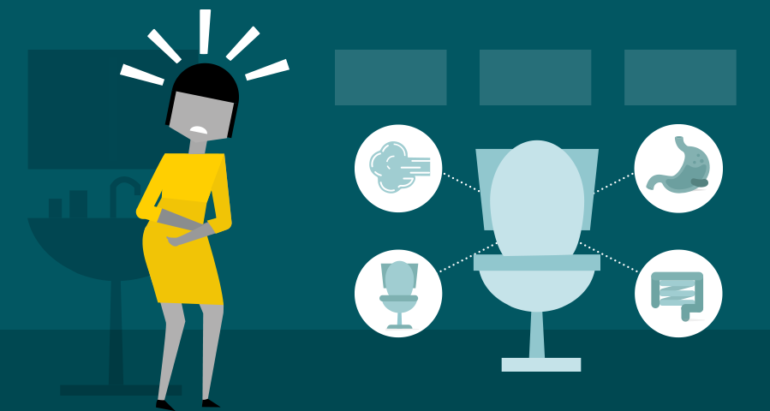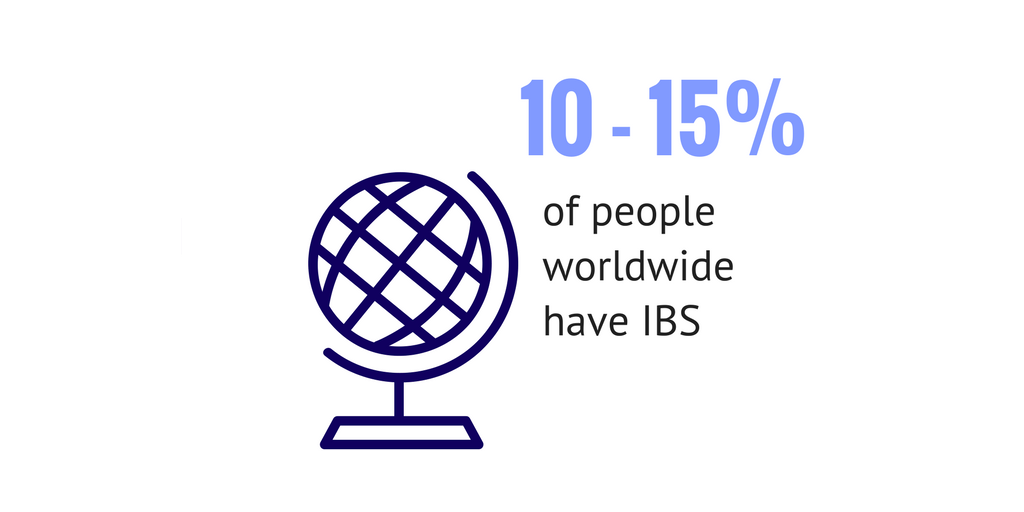IRRITABLE BOWEL SYNDROME (IBS)

OVERVIEW
Irritable bowel syndrome (IBS) is a common disorder that affects the large intestine causing pain in the stomach, wind, diarrhoea and constipation. It is a chronic condition and can be a long-lasting problem that changes how you live your life.

It’s not life-threatening, and it doesn’t make you more likely to get other colon conditions. Very few people have severe signs and symptoms and the same can be treated with medications and counselling. While most people can control their symptoms by following healthy lifestyle, managing diet and stress.
SYMPTOMS OF IRRITABLE BOWEL SYNDROME (IBS)
People with IBS have symptoms that can include:
- Diarrhoea
- Constipation
- Mucus in the stool
- Excess gas
- Cramping or belly pain
- Bloating
- Abdominal pain
CAUSES
The cause of irritable bowel syndrome isn’t well understood. A diagnosis is often made based on symptoms.
Inflammation in the intestines
Some people with IBS have an increased number of immune-system cells in their intestines. This immune-system response is associated with pain and diarrhoea.
Nervous system
Abnormalities in the nerves in your digestive system may cause discomfort. Poorly coordinated signals between the brain and the intestines can cause your body to overreact.
Muscle contractions in the intestine
The muscle contractions are strong and lasts longer than normal. This contraction can cause gas, bloating and diarrhoea or even hard, dry tools.
Severe infection
IBS can develop after a severe bout of diarrhoea (gastroenteritis) caused by bacteria or a virus.
Because IBS happens in women much more often than in men, some believe hormones may play a role. So far, studies haven’t borne this out.
SOME TRIGGERS
These are some of the factors that triggers the symptoms of IBS.
Stress
Psychosocial struggles such as anxiety, depression, stress, the loss of a loved one or a battle with addiction can also result in IBS symptoms.
Food
A true food allergy rarely causes IBS. But it has been observed that certain foods or beverages make the symptoms of IBS worse.
HOW IS IBS DIAGNOSED?
As said earlier, diagnosis is often made based on the symptoms. Your gastroenterologist may do some of the tests to decide if you have IBS:
- Colonoscopy to looks for signs of blockage or inflammation in your intestine.
- Upper endoscopy if you have heartburn or indigestion.
- X-rays
- Blood test to test for anaemia.
- Stool tests for blood or infections.
- Tests for lactose intolerance, gluten allergy, or celiac disease.
COMPLICATIONS
IBS is associated with:
Mood disturbance – Experiencing the IBS can lead to depression and anxiety and making the condition worse.
Poor quality of life – Many people with moderate to severe IBS report poor quality of life.
TREATMENTS
Treatments for IBS is mainly focused on easing the symptoms, mainly by managing the diet and lifestyle. Try to:
- Eat high fiber foods
- Drink a lot of fluids
- Workout regularly
- Have enough sleep
- Avoid foods that triggers the symptoms
- Avoid gluten (wheat, barley and rye)
- Manage your stress levels
- Avoid caffeine (in coffee, teas, and sodas)
- Don’t smoke
Usually, with a few basic changes in diet and activities, IBS will improve over time. Your body will need time to respond to these changes. If you or someone you know, are being troubled with severe IBS, contact us to book an appointment.
